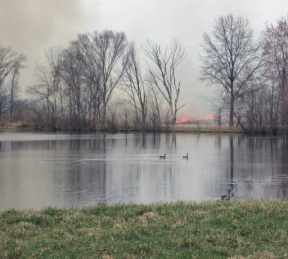Welcome! Click on a tab below to find books, articles, and websites for use in this course.
You'll need a College of DuPage Library card in order to use most of the resources below from off campus. If your card is not working, it may need to be reactivated.
Questions? Feel free to use my contact info to the right, stop by the Reference Desk, or contact us by email or chat.
Getting Started: Background Research
Not sure where to get started? Any of the following might help:
- A great place to begin is with what you find interesting. What questions do you have from class discussions?
- If you're struggling to find a topic, you can begin looking for topics at sites like the EPA's Basics of Green Chemistry.
- You can also check the article on Environmental Chemistry from the Environmental Encyclopedia (library card required).
- You can also try looking for topics by starting at Google News and doing a search for "chemicals and health" or "chemicals and environment."
- Your textbook or your class Blackboard site are also good places to start.
Once you've picked a topic, you'll want to do a bit of background research.
If you have any questions about definitions or the context of some of these issues (such as "how long have we been using nuclear energy in the US?"), head to a reference source to discover more information. Your best bets are:
Find Books: Using the Catalog
Books can be a great resource to help you to continue to figure out your topic. They are often written for a general audience and contain a lot of detail. To find books, start by clicking on Catalog at the top of your screen.
Breaking Down a Research Question for the Catalog
You always want to search by phrases, not sentences.
So, rather than searching by typing "How does fertilizer runoff impact the health of river ecosystems?" you'd want to separate out (and often generalize) your topic a bit.
So, try the following search instead:
You could also try searches like "cyanobacteria" or algae and drinking water.
Finding Sources
Once you've looked through the catalog, head to a library database in order to find magazine and journal articles. These will give you a current take on the topic. The best bets for your topic are:
Academic Search Complete: ASC offers a wide variety of topics with a wide variety of types of sources (newspapers, magazines, scholarly articles.) It's a good place to look for anything with a current focus (such as hydraulic fracturing), but be sure to know what you're looking at. To find a review article on your topic in Academic Search Complete, type your topic and review.
Example: "hydraulic fracturing" AND review.
Scientific American is a respected scientific magazine and articles are online in Academic Search Complete. Need an image or table from your article? The journal is in full-text in JSTOR except for the current 5 years, and we retain two years of the most current issues in our print collection.
You can also search newspapers throughout the country via National Newspapers Core.
The New York Times is in full text online from 1980 to the present via this database.
Finding Government Websites
While you're doing Google searches to either narrow your topic or in order to dig up more information on certain subject, you want to be careful to decide if the information you find is trustworthy.
When it comes to science, nearly everyone has opinions: are we getting enough Vitamin D? What will fracking do for our economy or our groundwater supply? Your job is to evaluate the information you can find through Google to find the good websites--those written by authors you can trust, with good and up-to-date information.
Authorship: Who created this website? What is their background on the topic? Are they trustworthy?
Bias: Why was the website created? What point of view does the author have? Does that limit the facts they present or how the facts are presented?
Date: How old is the information that is presented? Is it still accurate?
Questions? Check out the COD Library's guide to evaluating information.
Remember that for this class, you want to use government websites only.
If you're searching for government websites on your topic, you can search google for site:.gov
Cite Sources
Find directions about how to cite your sources on the library citation guide.
You can also always check out the Purdue OWL website, which has MLA and APA citation guides.
Finally, you are welcome to use NoodleBib if you'd like to use a program to create and organize your citations. You must "Create a New Folder" when you use NoodleBIB for the first time. Click on "I am citing a(n):," choose the type of item you are citing, and then fill in the online form. Your bibliography will be formatted for you.
Plagiarize, Patchwrite, Paraphrase?
Confused about when you would need to cite, or where the line is drawn between paraphrasing and patchwriting?
Take a moment to look at the following sources to see definitions and good and bad examples of student writing. Further questions? Contact me using the information at the right of the screen.
- The COD Plagiarism Tutorial has samples, quiz questions to test your knowledge, and helpful explanations.
- Not sure if you're practicing patchwriting? Check out this guide hosted by Lindsey Wilson College
- You can also see examples of patchwriting on this page.
Class Examples
Please take a moment to look at your assigned link. Try to answer the following questions:
- Who is the audience?
- Who is the author?
- Could you use the source for your project?
- If so, how could it be used? (What kind of information does it provide?)
Five Chemicals in Baby Products You Need to Avoid
Maternal and Fetal Exposure to Parabens in a Multiethnic Urban U.S. Population
